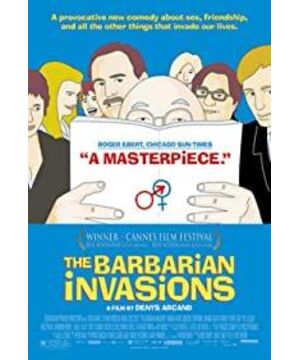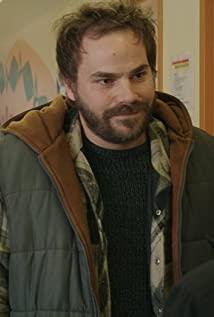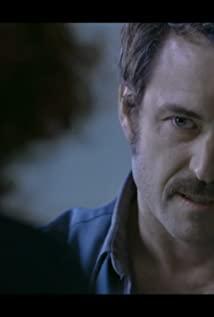In fact, the film could be called the sequel to Canadian director Arcander's 1986 film, The Decline and Fall of the American Empire, in which the bohemian Montreal intellectual has become Professor Remy, ill. He was dying, and only had the strength to think. And his sons and daughters have grown up and have completely different choices from their parents. Remy's son Sebastian is a typical successful person. In order to take care of him and return to Canada from London, Remy passed away peacefully thanks to Sebastian's unremitting efforts. Remy's friends have a farewell party at his bedside, and in their memories, a past that is already like smoke quietly emerges. From the 1960s, when they were youthful, to the more chaotic today, they have followed countless doctrines, pursued countless men or women, hurt their wives and children, denied religion and all beliefs, and then when they were about to die At times, they are still afraid, like all dying people.
When these past angry youths gathered and recalled, the world continued to move forward without hesitation. Akander used the death of a person to review the history and show the present. We will see the World Trade Center collapsed on TV on 9/11, and the academics who sum it up with "Barbarian Invasion"; we will hear Canadian police talking and laughing about the transformation of Montreal's drug scene; Horrible bureaucracy and the resulting horrific and chaotic medical conditions will see once-religious relics now being valued by antique dealers who conclude that they are almost worthless. In fact, it was just the death of one person, but Akander almost let you see the whole world, and even China did not escape his attention. From the Cultural Revolution to the reform and development, they were all presented in the chat before his death.
But don't be intimidated by the staggering amount of information, Akander's genius is that he makes the elements come together without a trace and without any heaviness. He tells the story in a variety of ways, with French debauchery and humor, as well as family and friendship that is almost Hollywood-like, but perhaps more of an anxious thinking: people's powerlessness in the face of money , hesitant in the face of falsehood. However, Akander's final conclusion is undoubtedly healthy and in line with mainstream values. It is no wonder that the Oscars will award him the foreign language film award.
It's a movie that will make you cry, but only if you're prepared to hear intellectuals sum up the contemporary intellectual history, and there are already unliterate Americans who scoff at this profound film: "If they all shut up Enough".
View more about The Barbarian Invasions reviews











